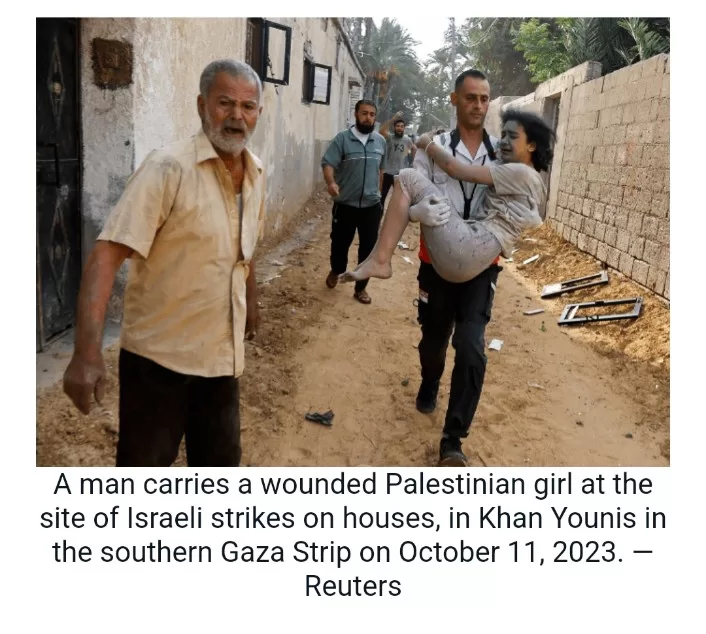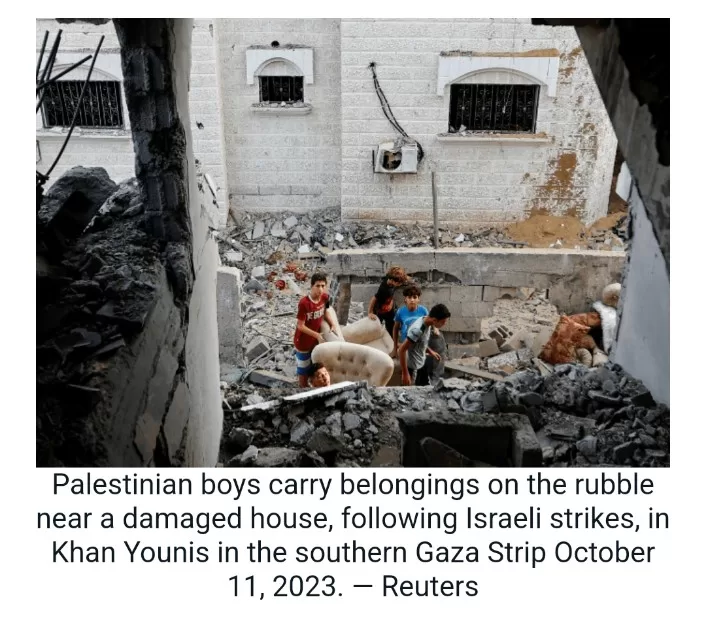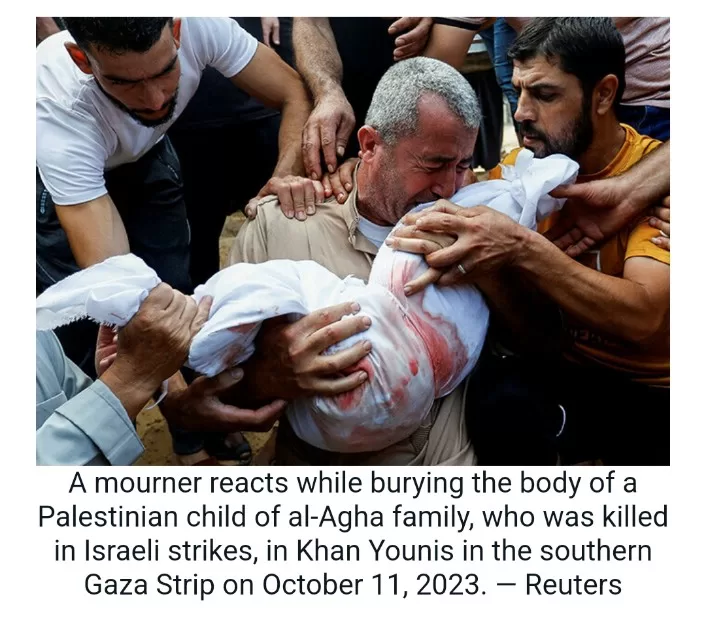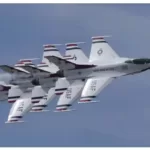In a deeply troubling turn of events, the sole power plant in the besieged Gaza Strip, subjected to relentless Israeli bombardment, ceased operations due to an acute shortage of fuel, as confirmed by the Palestinian enclave’s electricity authority. The United Nations agency dedicated to Palestinian refugees, Al Jazeera, expressed grave concerns, reporting that it possessed less than two weeks’ worth of food and water supplies to aid the over 180,000 Palestinians who have sought refuge in Gaza’s schools.
As the situation unfolded, Gaza’s health ministry reported a distressing toll of at least 1,055 Palestinians killed and 5,184 injured in the densely populated coastal area since a sudden attack commenced on Saturday. In stark contrast, Israel’s military stated that the death toll had surged to 1,200, with more than 2,700 individuals wounded, along with the discovery of around 1,500 fighters’ bodies.
The specter of a regional conflagration loomed large, with an imminent Israeli ground incursion into Gaza anticipated, the very territory from which Hamas initiated its comprehensive assault by land, sea, and air on the Jewish Sabbath.
International non-governmental organizations issued a dire warning concerning the dire health and humanitarian crisis unfolding in Gaza. Civilians bore the brunt of the violence, their lives marked by fear, chaos, and destruction.
In the midst of this tragedy, Turkish President Recep Tayyip Erdogan criticized Israel’s conduct in the Gaza Strip, emphasizing that it was not acting like a state, decrying actions such as civilian bombings, hindrance of humanitarian aid, and the indiscriminate bombardment of innocent Gazans.
The situation became even grimmer with the revelation that over 260,000 people were forcibly displaced from their homes in Gaza, a result of relentless Israeli airstrikes by land, air, and sea. Many found refuge in UN schools, while others sought shelter with relatives, neighbors, and within places of worship. This crisis marked the largest displacement in Gaza since the 2014 hostilities.

As Gaza struggled to cope with the escalating humanitarian catastrophe, Israel imposed a harsh siege, cutting off crucial supplies of food, water, fuel, and electricity, leading to a dire and rapidly deteriorating situation. International humanitarian law prohibits such sieges, and the United Nations called for humanitarian corridors to aid those trying to escape the turmoil.
In the midst of the chaos, medical supplies, including essential oxygen, dwindled at Gaza’s overwhelmed Al-Shifa hospital. Palestinians in Gaza, numbering 2.3 million, faced an unprecedented and dire crisis.
The international community watched with alarm as violence escalated, claiming the lives of civilians and posing a threat to regional stability. The repercussions of this ongoing conflict extended far beyond the borders of Gaza, affecting citizens of various nations, including the United States, which reported casualties among its citizens.
This developing situation raised concerns among Western leaders, leading to condemnations of the violence and calls for de-escalation. Yet, in the Arab world, support for the Palestinian resistance remained strong, with people expressing solidarity and resistance against Israel’s prolonged occupation.

The situation took an even darker turn with the threat of further civilian casualties and a hostage crisis involving around 150 individuals, including children and the elderly. Hamas warned of reprisals for Israeli strikes on civilian targets without warning, leading to a tense and precarious situation.
Israel, caught off guard by the intensity and scale of the Hamas attack, faced a multi-front war with clashes on its northern border with Lebanon and tensions on its eastern border with Syria. This protracted conflict prompted Israeli authorities to call for national unity, seeking to bridge divisions that had surfaced earlier in the year.
The future remains uncertain as violence persists, and the international community grapples with the complex and harrowing dynamics of this ongoing conflict.







